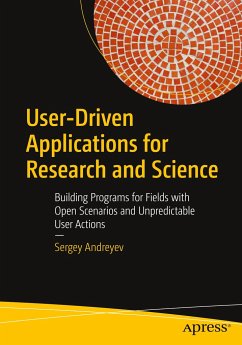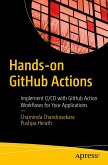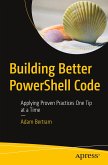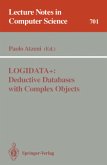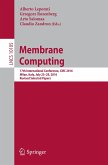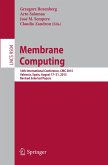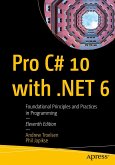Build programs that give users full control of their applications in order to meet end users' unique needs and scenarios.
Over the last couple of decades, there has been an ongoing quandary in the developer world. Developers are enlisted to build applications to meet users' demands; users get applications that meet the criteria from the developers' point of view, but they are far from what the users envisioned. The difference is often wide and nearly catastrophic in fields where users' actions are nearly impossible to predict, such as science, research work, financial analysis, and others. End users get frustrated with the applications because they were not built with their use cases in mind. For a long time, it was assumed that the developers who created the code should drive their programs and be responsible for all scenarios. While generally not an issue in simple programs, this view is wrong for complex applications in the field of science. These end users are the best specialists in their respective fields and need applications to work beyond the scenarios prepared and allowed for by developers.
This book teaches you methods to manage your applications in a way that gives control to your target end users. You will learn proven methods using an easy and predictable instrument, the all-powerful algorithm, to create objects that are movable and re-sizable by users.
Get ready to learn by example, using an algorithm of total movability and experience, implemented in different situations. You will begin with the simplest code examples and work your way up to real, complicated programs applicable in STEM fields.
What You Will Learn
Pass the control of your programs from developers to end usersUnderstand that the most valuable result is not the algorithm itself, but the consequence of using itBuild user-driven applications that include total movability of screen elementsSee concepts applied in real situations and scenariosBe exposed to well-known programs and tasks for developing user-driven applicationsAccess accompanying code written in C# and available on GitHub
Who This Book Is For
Developers who want to write or design programs that give their target end users full control over their application
Over the last couple of decades, there has been an ongoing quandary in the developer world. Developers are enlisted to build applications to meet users' demands; users get applications that meet the criteria from the developers' point of view, but they are far from what the users envisioned. The difference is often wide and nearly catastrophic in fields where users' actions are nearly impossible to predict, such as science, research work, financial analysis, and others. End users get frustrated with the applications because they were not built with their use cases in mind. For a long time, it was assumed that the developers who created the code should drive their programs and be responsible for all scenarios. While generally not an issue in simple programs, this view is wrong for complex applications in the field of science. These end users are the best specialists in their respective fields and need applications to work beyond the scenarios prepared and allowed for by developers.
This book teaches you methods to manage your applications in a way that gives control to your target end users. You will learn proven methods using an easy and predictable instrument, the all-powerful algorithm, to create objects that are movable and re-sizable by users.
Get ready to learn by example, using an algorithm of total movability and experience, implemented in different situations. You will begin with the simplest code examples and work your way up to real, complicated programs applicable in STEM fields.
What You Will Learn
Pass the control of your programs from developers to end usersUnderstand that the most valuable result is not the algorithm itself, but the consequence of using itBuild user-driven applications that include total movability of screen elementsSee concepts applied in real situations and scenariosBe exposed to well-known programs and tasks for developing user-driven applicationsAccess accompanying code written in C# and available on GitHub
Who This Book Is For
Developers who want to write or design programs that give their target end users full control over their application

